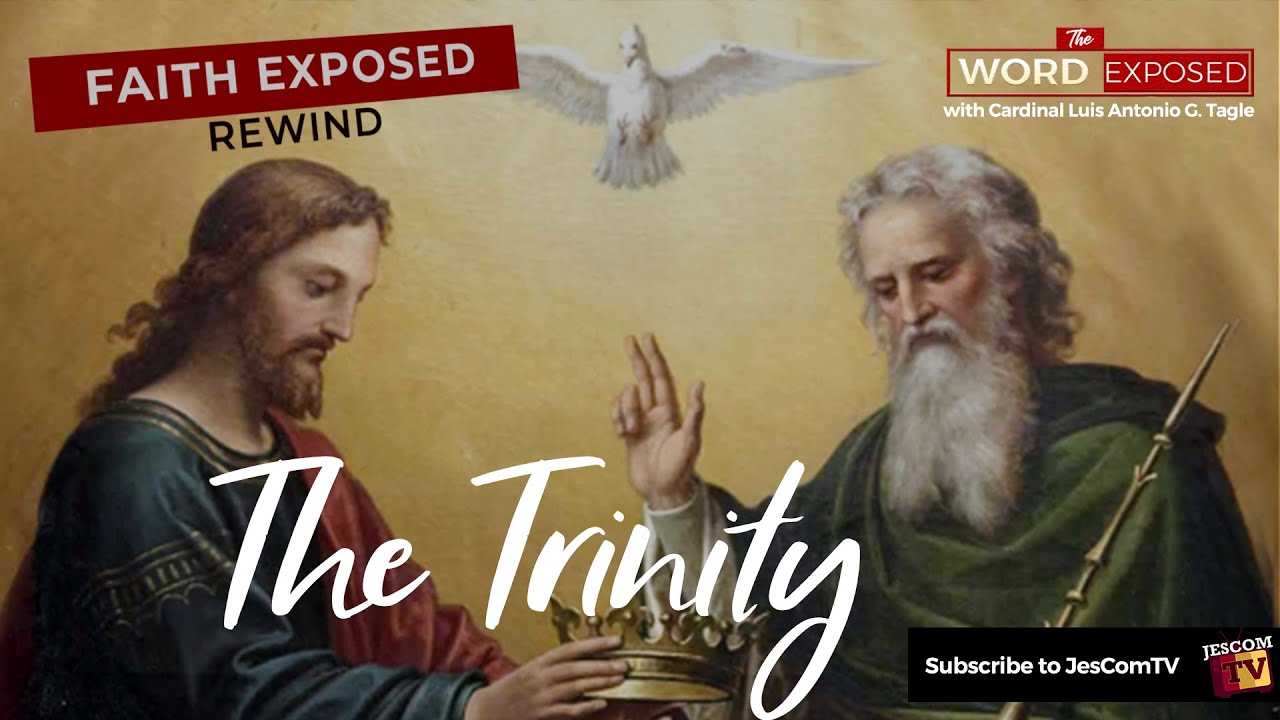BAPA,PUTRA & ROH KUDUS BUKAN TIGA PRIBADI TERPISAH
Summary
TLDRThe transcript discusses the concept of the Trinity in Christian theology, emphasizing the unity of God in three persons: the Father, the Son (Jesus Christ), and the Holy Spirit. The speaker explores biblical references and interpretations, addressing misconceptions about the nature of the Trinity, Jesus' divinity, and His relationship with the Father and the Holy Spirit. The conversation touches on historical debates, scriptural contexts, and symbolic representations, such as the Holy Spirit as a dove, explaining that these are metaphors rather than literal depictions of God's essence.
Takeaways
- 📖 The teaching revolves around the concept of the Trinity, explaining the presence of God the Father, Son, and Holy Spirit.
- 🧐 Critics argue that certain biblical manuscripts lack the explicit mention of the Father, Son, and Holy Spirit, but original texts show otherwise.
- 💡 Eusebius of Caesarea, a 4th-century church historian, is referenced to clarify early Christian views on the Trinity.
- 🔎 The text emphasizes the difference between baptism 'in the name of Jesus' versus 'in the name of the Father, Son, and Holy Spirit.' Both are considered valid expressions of the Trinity.
- 📝 The speaker emphasizes that the concept of the Trinity is not a contradiction but a theological mystery that can be understood in context.
- 👶 Jesus is referred to as the 'eternal Father' in prophetic texts, reflecting his role as the last Adam who brings eternal life, contrasting Adam's legacy of sin.
- 💬 The speaker distinguishes between Jesus' divinity (as the eternal Word) and his humanity (born of Mary).
- 🔄 The Trinity is explained as one divine essence with three distinct persons (Father, Son, and Holy Spirit), not separate entities but distinct in roles.
- 🔔 The speaker discusses the theological term 'hypostasis,' referring to the distinct persons within the Godhead.
- 🎨 The imagery of God the Father or Holy Spirit (e.g., in human form or as a dove) is considered symbolic, and literal depictions are discouraged in Christian teaching.
Q & A
What is the main topic discussed in the transcript?
-The main topic is the concept of the Trinity in Christianity, particularly the relationship between the Father, the Son (Jesus), and the Holy Spirit, as well as interpretations of Biblical texts regarding these concepts.
Why does the speaker emphasize the importance of understanding the original Biblical text?
-The speaker emphasizes understanding the original Biblical text to refute claims that certain phrases, like 'Father, Son, and Holy Spirit,' were later Christian additions. He argues that understanding the original text helps counter those who misinterpret or manipulate scripture.
What is the speaker’s position on the relationship between Jesus and the Father?
-The speaker explains that while Jesus is referred to as the 'Son,' he is also identified with God the Father in certain Biblical contexts. He stresses that the title 'Son' reflects Jesus’ human nature, while 'Father' reflects his divine nature.
How does the speaker interpret Jesus being referred to as the 'Eternal Father' in the prophecy of Isaiah?
-The speaker explains that Jesus is called the 'Eternal Father' because, unlike Adam (who brought death through sin), Jesus brings eternal life through salvation. This represents Jesus as a new 'Adam,' the father of eternal life, in contrast to Adam as the father of human sin.
How does the speaker explain the concept of the Trinity in terms of ‘hypostasis’?
-The speaker refers to ‘hypostasis’ (a term used in the New Testament) to describe the distinct persons of the Trinity. He explains that the Father, Son, and Holy Spirit are distinct but inseparable, each representing different aspects of the one divine essence.
What distinction does the speaker make between Jesus’ humanity and divinity?
-The speaker distinguishes between Jesus' humanity, which was born of Mary and died on the cross, and his divinity, which is eternal and uncreated. Jesus as the 'Word' existed before creation, and this divine aspect is inseparable from God.
How does the speaker address the question of God ‘begetting’ the Son?
-The speaker clarifies that 'begetting' in reference to God does not imply biological reproduction, as some might misunderstand. Instead, it refers to the eternal relationship between God the Father and the Son, with the Son being the expression of God's divine nature.
What is the significance of the phrase 'Marilah kita jadikan manusia' (Let us make man) in Genesis, according to the speaker?
-The speaker interprets the phrase 'Let us make man' as God's consultation within the divine community (the Trinity) rather than involving other beings like angels. It reflects the internal dialogue of the one God before the creation of humanity.
What does the speaker say about the depiction of the Holy Spirit as a dove?
-The speaker explains that the image of the Holy Spirit as a dove is a symbolic representation (teofani) of the Holy Spirit's presence. It does not imply that the Holy Spirit is literally a dove, just as flames on Pentecost do not mean the Holy Spirit is fire.
Why does the speaker reject the depiction of God the Father in visual form?
-The speaker rejects the depiction of God the Father in visual form because the Bible states that no one has seen God the Father. Any attempt to visually represent God the Father is considered misleading and unbiblical according to the speaker.
Outlines

Cette section est réservée aux utilisateurs payants. Améliorez votre compte pour accéder à cette section.
Améliorer maintenantMindmap

Cette section est réservée aux utilisateurs payants. Améliorez votre compte pour accéder à cette section.
Améliorer maintenantKeywords

Cette section est réservée aux utilisateurs payants. Améliorez votre compte pour accéder à cette section.
Améliorer maintenantHighlights

Cette section est réservée aux utilisateurs payants. Améliorez votre compte pour accéder à cette section.
Améliorer maintenantTranscripts

Cette section est réservée aux utilisateurs payants. Améliorez votre compte pour accéder à cette section.
Améliorer maintenant5.0 / 5 (0 votes)






